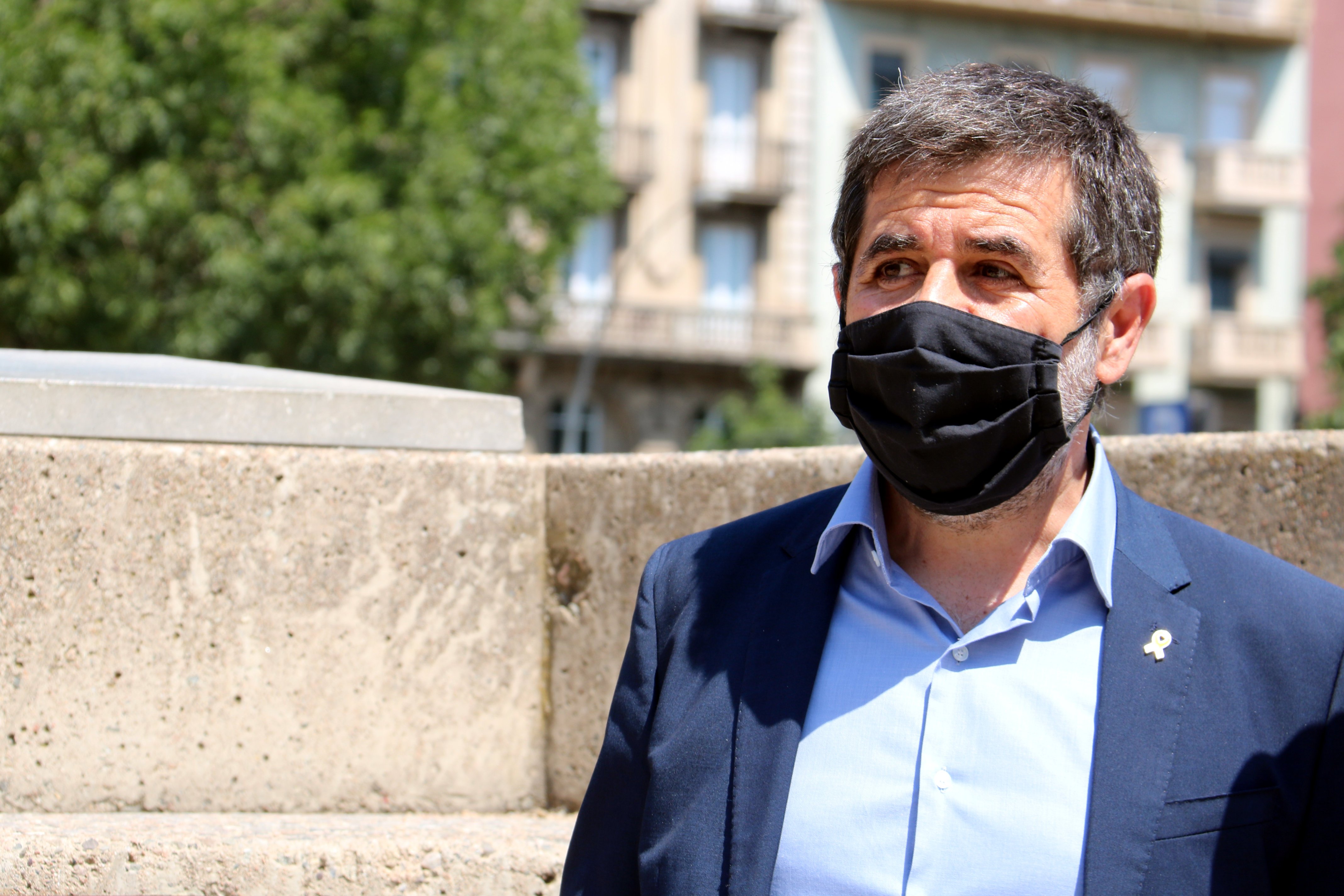The discontent between Catalan government partners ERC and Junts over the dialogue table is evident. But in order to calm the waters, the general secretary of Junts, Jordi Sànchez, has closed ranks with his rivals over the need for the stability of the Catalan pro-independence coalition: "I will not seek what many want me to do, that is, get into verbal conflict with president Aragonès". Thus he concludes that "this matter is not a minor discrepancy, but it should not extend to other areas", as he told Catalunya Ràdio this Friday.
In the event that the misunderstanding over the negotiation table with the Spanish state worsens, Sànchez warns that governability could be in danger: "If I accused ERC of disloyalty, I would have to leave." And the path that Junts will take from now on, depends depends very much on what emerges: "We will not put pressure on the government over this issue, if we they lift the veto, we'll enter the table. If not, we'll remain loyal to the agreement that we made". And he points the finger of blame at the Spanish government: "We didn't leave the dialogue table, they didn't let us in. You just need to listen to the spokesperson for the Spanish government."
It is in the final build-up to this table that the disagreements between Carles Puigdemont's party and the Republican Left are found. The communication, both public and private, on a personal basis, is one of the most disputed areas. For example, president Pere Aragonès was angered by learning the names proposed by Junts through the media. Sànchez replies that this was not the case: "I warned Aragonès weeks ago that [despite] the desire to bring ministers it would not be so," but that under no circumstances did they make their list public in order to avoid "speculating." And looking at the other side, he says that ERC did the same: "We also learned from the media that ministers Vilagrà and Torrent would be participating. The debate on these issues is not of much help to the debate over the substance".
Focusing on the substance, on what the table is all about, Sánchez does not hide the doubts that Junts raises about its usefulness: "I do not agree that the independence process is over, but if this is the mental framework of the Spanish government, as Bolaños himself says, what are they going to negotiate?" And he reiterates that the external figure "of an observer, a more equidistant profile" would go well. And he puts a large question mark beside the health of these negotiations: "Someone is playing with the dialogue table and his will, and in this Pedro Sánchez is the king." That’s why the Junts secretary ends up asking himself, with regard to what was seen on Wednesday: “Is it really a negotiating table?”
Cover photo: archive image of Jordi Sànchez

